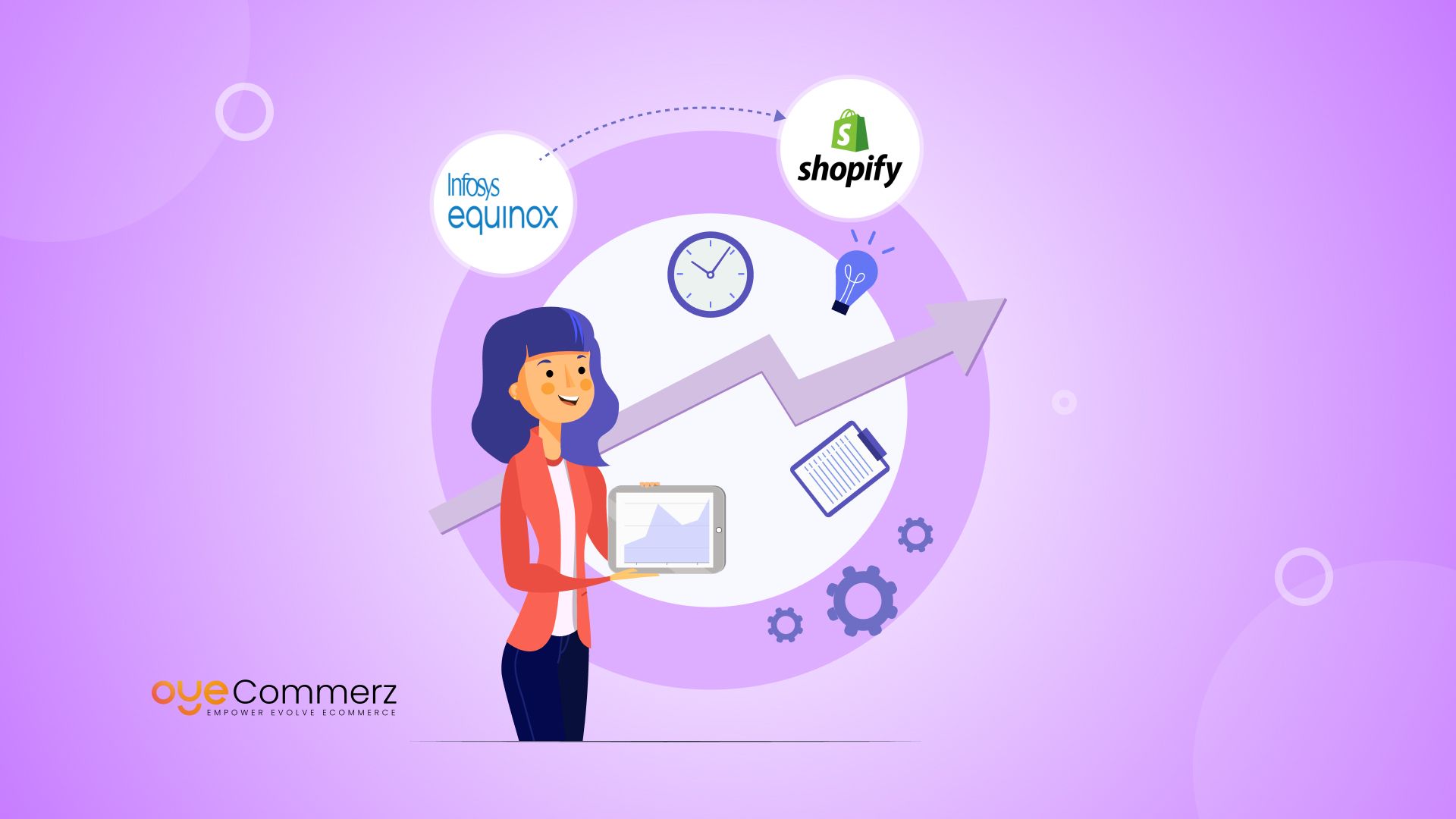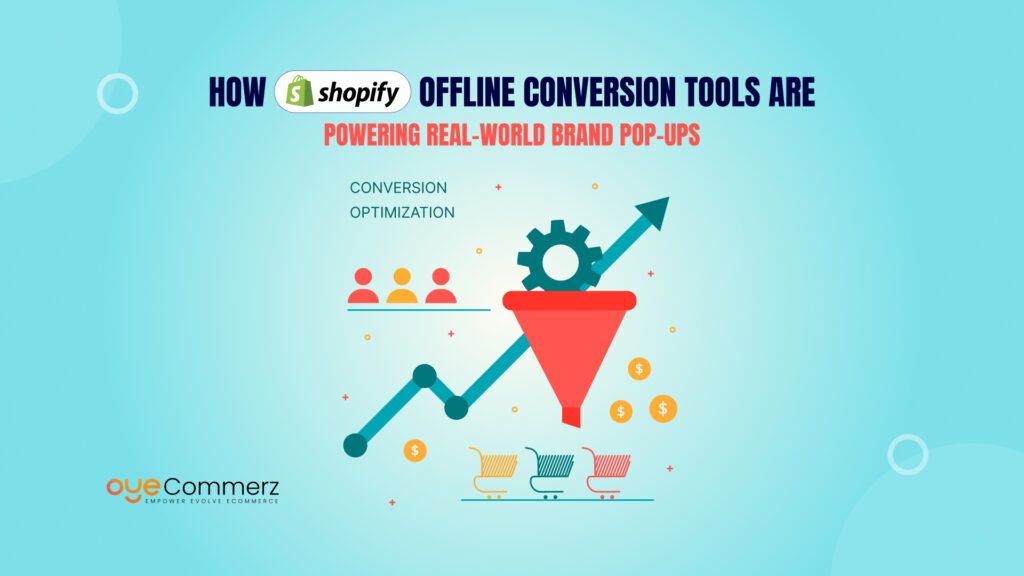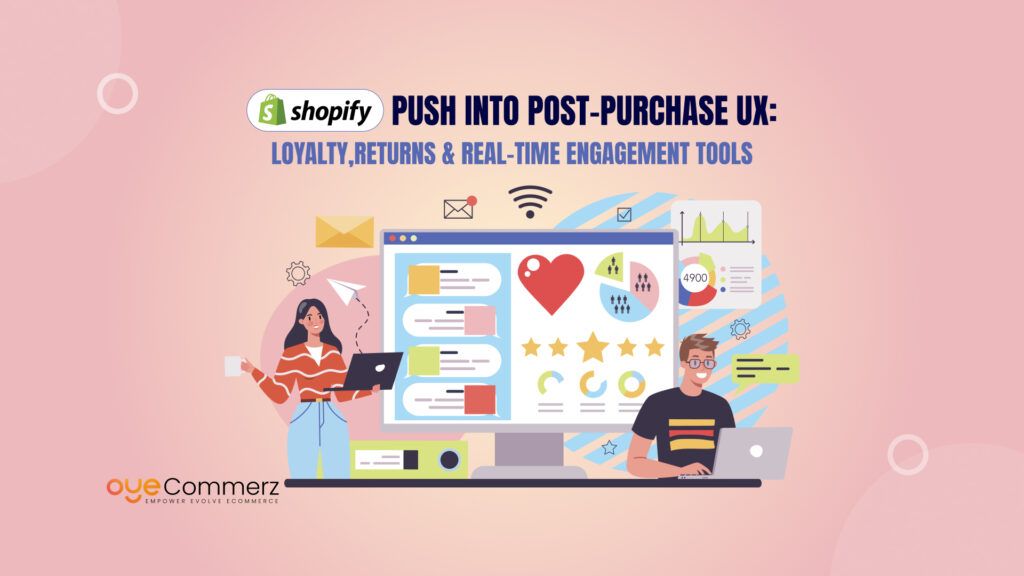Thinking about switching from Infosys Equinox to Shopify but unsure if it’s the right move? If you’re an existing Shopify business owner, you already know the power of a user-friendly, scalable e-commerce platform. But what if I told you that migrating from Infosys Equinox to Shopify could cut your operational headaches in half and boost sales by up to 30%?
From seamless integrations to cost-effective app development, Shopify offers a future-proof solution that’s built for growth. Let’s explore why making the switch could be one of the best decisions for your business.
Table of Contents
ToggleWhy Migrate from Infosys Equinox to Shopify?
Evolving Market Needs to Require More Agility
Infosys Equinox is a fabulous platform for big, complex eCommerce systems. However, with this comes the challenges of how quickly it can scale or streamline the operations of a business. Businesses have to keep updating their systems as the expectations from customers about seamless shopping experiences across various devices and channels increase day by day. While Infosys Equinox does provide custom solutions, often these need a lot of technical acumen and time.
Shopify is highly agile, keeping scalability in mind while building the product. Ready-to-use features and its humongous app ecosystem allow businesses to scale rapidly without waiting in long lines for extended development cycles. That means if you want to expand your catalog of products introduce new payment methods or simply run a campaign around the world, Shopify’s flexibility would help you react immediately to market changes.
Cost of Operations
All this is very expensive to maintain. The rest goes into hosting fees, salaries of developers working for Infosys Equinox, security patches, and system upgrades eating into the profits of the company. Shopify is very clear in its pricing model: clear-cut subscription plans and less reliance on custom developments.
Now companies can easily slash costs on business operations but for enterprise-level hosting, security, and Automated updates with no extra cost as offered by Shopify itself. The same cost-effectiveness frees the resources of a business to be re-invested in growth-driven activity instead of infrastructure management.
Customization Without Complexity
Infosys Equinox offers extreme customization levels but with a price of high complexity; customizations often demand highly skilled developers and exhaustive testing, which sometimes makes the implementation take longer time. Shopify balances great customization capabilities at the Shopify Plus tier while keeping the more consumer-friendly interface in place for non-technical businessmen. This would mean that your business can still enjoy custom functionality without necessarily needing a team of in-house or outsourced development teams.
Global Trade with Minimal Hassles
For global trading businesses, Shopify offers an inbuilt multi-currency facility and language support as well as global payment gateways. In the case of Infosys Equinox, this functionality can be obtained through customization. Shopify makes global trading much more manageable and also reaches more international markets earlier with minimal technical hassles.
Key Differences Between Infosys Equinox and Shopify
In comparing Infosys Equinox with Shopify, scalability, cost, ease of use, and performance become the basis for comparison. Let’s dissect the differences:
1. Ease of Use and Maintenance
Infosys Equinox:
This system can be very highly customized but has an added requirement of a specific development team for updates, integration, and changes. The platform is very powerful, yet it gets quite complex, causing a steep learning curve.
Shopify:
Easy to use, with a user-friendly interface, the application enables business owners, marketers, and other non-technical staff personnel to take care of day-to-day work with minimal dependence on developers. It has support for managed hosting, automatic updates, and a drag-and-drop editor.
2. Flexibility and Customization
Infosys Equinox:
Highly customizable, but also largely dependent on custom code and technical knowledge. Only ideal for companies that have unusually unique needs, but will often necessitate the expensive work of developers just to change even the smallest things.
Shopify:
Very flexible through the use of apps, themes, and Liquid, the templating language of Shopify; however, not with too many undue complexities. Shopify Plus allows for far more advanced customization and API access for bigger businesses.
3. App Ecosystem and Integrations
Infosys Equinox: While capable of integrating with third-party tools, the integration process often requires custom development work and in-house expertise.
Shopify:
One of the most comprehensive app ecosystems in the eCommerce world. Shopify’s App Store provides numerous pre-built integrations with marketing, analytics, logistics, and much more, which ensures businesses can extend the functionality of their store with minimal development.
4. Scalability and Growth
Infosys Equinox:
Suitable for large, enterprise-level operations but could necessitate huge investments to expand as the business grows.
Shopify:
Scalable architecture. Shopify Plus is created for enterprise-level businesses that don’t need a bandwidth cap. Bandwidth is unlimited, page load time is fast, and it can handle a surge in traffic, so it’s a good site to work on if rapid expansion is expected.
5. Cost Structure
Infosys Equinox:
Usually requires a custom price model based on specific needs, which becomes pretty pricey, especially when adding constant development costs onto that.
Shopify:
A transparent and predictable pricing model. Shopify Plus is often the enterprise-level solution, and the pricing will be paid on a flat monthly rate or a percentage-based pricing on revenue, so basically, most shocks or unexpected expenses are quickly thrown out the door.
Why Shopify is the Future of eCommerce Platforms
Shopify has emerged to become one of the world’s leading companies in powering over 1.75 million merchants. Here is the reason why Shopify is often considered the future of eCommerce:
1. Ongoing Innovation
Shopify invests heavily in research and development, continually rolling out new features to help businesses of all sizes. From integrating AI for personalized customer experiences, and improving the SEO capabilities to offering cutting-edge mobile optimization, Shopify ensures that users always have access to the latest innovations. This future-focused approach keeps businesses at the forefront of eCommerce trends without manual updates or development.
2. Omnichannel Capabilities
Today’s shopper expects seamless shopping experiences across any and every channel: mobile, desktop, social media, or in-store. All is taken care of through Shopify integrated omnichannel solutions that let businesses sell anywhere and manage all sales channels in one central place, therefore facilitating the cohesive customer experience regardless of where a customer interacts with the brand.
3. AI and Automation
Growing operations may overload businesses, especially operational tasks. The use of artificial intelligence and automation allows Shopify to run its operations efficiently. Features such as Flow for automating workflows, Shopify Ping for the automation of customer service operations, and even AI-driven marketing tools available on the platform help businesses improve operations without raising the load.
4. Performance and SEO
Being fast and quick is very critical for success in eCommerce; slow websites mean abandoned carts and lost revenues. Shopify is built on an infrastructure that’s very fast, which means fast load times-an improvement on both the customer experience and on search rankings. Advanced SEO features are added, therefore, making it more competitive in search rankings, driving organic traffic and converting more.
Support and Optimization on Shopify Post-Migration
The next phase would be from Infosys Equinox to Shopify. After the migration is complete, post-migration optimization must be executed so that there is an effective transition and maximum performance is attained. Here’s how you can support and optimize your Shopify store post-migration:
1. Data validation and testing
After migration, validating the data is critical. Ensure all products, customer details, and order histories have been migrated correctly. Use Shopify’s built-in tools to test the functionality of your site, including product pages, checkout processes, and payment gateways.
2. SEO Optimization
If not handled with care, migrating platforms may break your search engine rankings. Shopify provides you with SEO tools so that your new store remains a great search engine-optimized entity. Here, your focus should be on the implementation of 301 redirects for keeping all your old URLs, prevention of lost traffic, optimizing meta tags and descriptions, and using Shopify’s URL structure for maintaining SEO continuity.
3. Customising and Enhancing User Experience
Use Shopify themes and customization features to provide a user experience that better encompasses your brand identity. Fine-tune navigation, search functions, and product categorization to give the customer the most seamless shopping experience possible.
4. Performance Tracking and Analytics
After migration is done, you should track the performance of your store. The analytics offered by Shopify are quite robust in tracking traffic, conversions, customer behavior, and much more. Use these insights to refine your strategy and make data-driven decisions.
5. Post-Migration Support by Shopify Experts
Shopify has an extensive community of qualified experts to give you post-migration support. Whether you need help with design, app integrations, or custom development, the Shopify ecosystem has specialists who can fine-tune your store to render it as an excellent performance server.
Take Your E-Commerce to the Next Level with OyeCommerz
Migrating from Infosys Equinox to Shopify can transform your operations with enhanced scalability, reduced costs, and superior customization. OyeCommerz, your trusted Shopify migration partner, specializes in seamless transitions with minimal downtime and complete data security. Our expert team ensures that your business is equipped with the latest Shopify features, empowering you to grow faster and operate more efficiently.
Contact us now for a free consultation and start your migration journey with confidence!
Contact to Migrate your Site to Shopify Now
Conclusion
The major strategic shift of a company that has its custom, proprietary e-commerce platform called Infosys Equinox moving to Shopify would surely better position the company to take it to further extremes. With its user-friendly interface, scalable features, and an extended app ecosystem for a modern eCommerce business, Shopify is well-positioned to reduce operational complexities.
This will all be with the help of the imaginative tools on Shopify, and your business will grow along with the streamlined operations before finally giving customers the memorable experience they deserve. More importantly, Shopify will help you stay ahead in the ever-changing digital world as you maintain your edge in the market, and it will give you back-end support and optimization after migration.
Frequently Asked Questions
Migrating to Shopify allows you to leverage a scalable eCommerce platform with better flexibility, lower maintenance costs, and a vast app ecosystem. Shopify’s user-friendly interface and built-in features make it easier to manage and grow your online store.
Shopify offers optimized eCommerce performance with faster page loading speeds, seamless third-party integrations, and cloud-based hosting. This ensures better uptime, enhanced security, and a smoother shopping experience for your customers.
No, with a proper Shopify migration strategy, all your important data—products, customers, and order history—can be transferred safely. Professional migration services ensure a seamless data migration process with minimal downtime.
Yes, Shopify provides cost-effective eCommerce solutions with predictable pricing, lower development expenses, and fewer infrastructure costs. Unlike Infosys Equinox, Shopify’s subscription model includes hosting, security, and automatic updates, reducing overall operational costs.
Shopify offers mobile-friendly eCommerce solutions, modern themes, AI-driven personalization, and a faster checkout process. These features lead to higher engagement, reduced cart abandonment, and improved customer satisfaction.
With Shopify’s SEO-friendly eCommerce platform, you get built-in SEO features, customizable URLs, faster load times, and optimized site structures. This helps improve search rankings, drive more organic traffic, and boost online sales.




